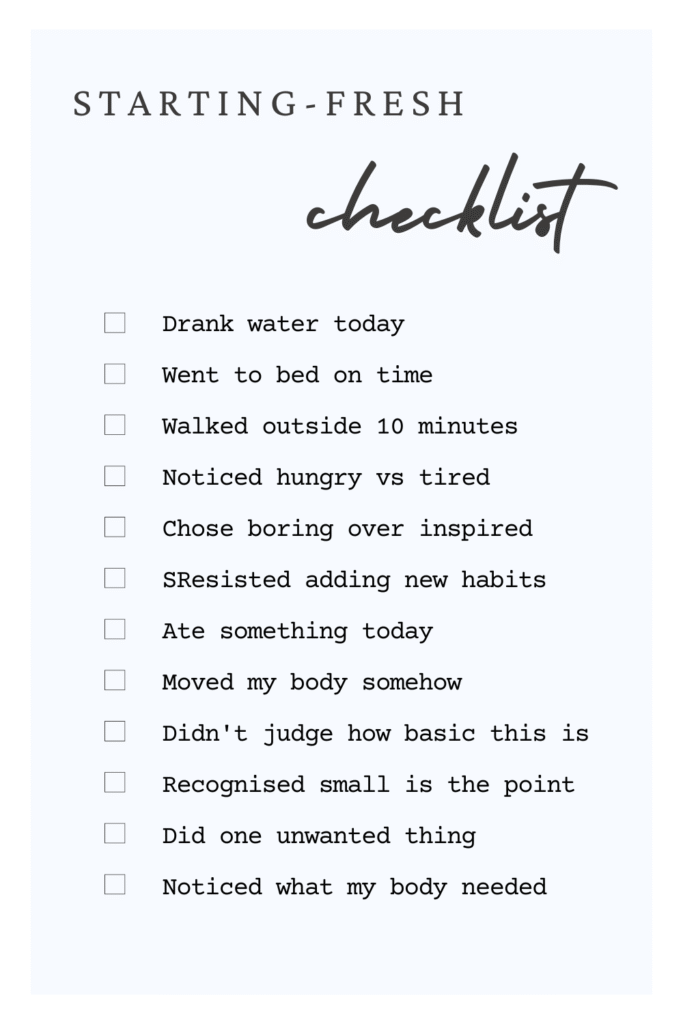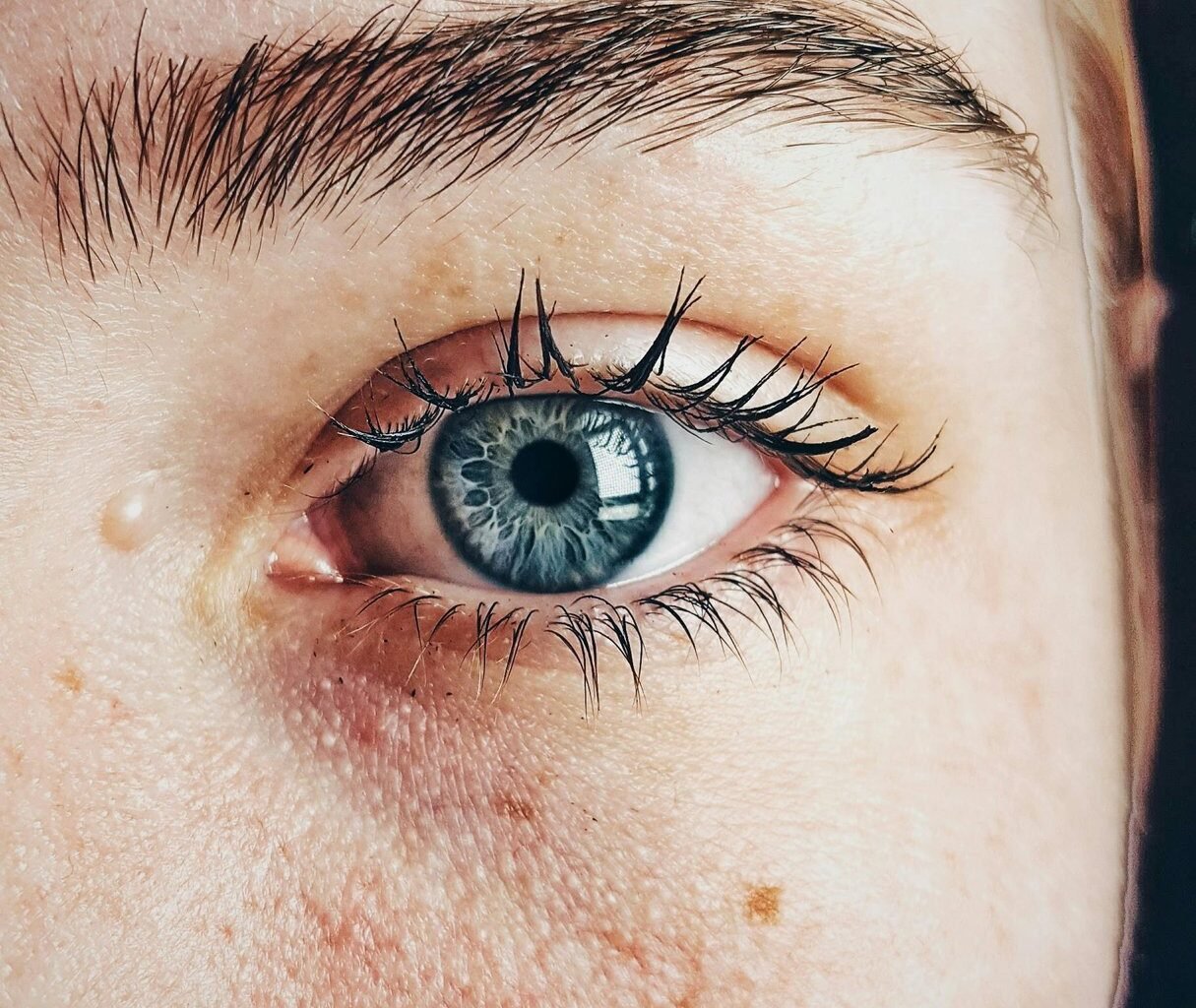You’ve never really done this before. Self-care was something other people talked about whilst you pushed through, achieved things, met expectations, kept going. Now you’re here, possibly because pushing through stopped working, possibly because you’re tired of watching everyone else seem to manage better, and you don’t know where to start.
Every guide assumes knowledge you don’t have. “Listen to your body” means nothing when you’ve spent years ignoring every signal it sent. “Set boundaries” sounds lovely until you realise you don’t know what yours are, let alone how to communicate them. “Build a morning routine” requires understanding what you need from mornings. You don’t.
The advice for overwhelm won’t help because you don’t have enough in place to streamline. The guidance for burnout assumes you recognise depletion. The stuck-pattern solutions assume you’ve built something that isn’t maintaining. You haven’t built anything yet. (Work out which situation fits you in the main guide.)
Why Starting Fresh Feels Harder Than It Should
Everyone else seems to have figured out basics. They know they need eight hours sleep. They recognise when they’re hungry versus when they’re tired. They notice stress building before it becomes crisis. They have practices that ground them.
You’re learning a language everyone else appears fluent in, except nobody taught you the vocabulary. Worse, wellness culture sells advanced techniques to beginners. Face masks and bath rituals and elaborate morning routines when you haven’t mastered drinking water consistently.
Starting fresh means admitting you don’t know things that seem obvious to everyone else. It means asking questions that feel stupid. It means trying things that might not work and having no framework for understanding why they didn’t.
Where You Begin (Not Where Instagram Begins)
Physical basics. Not because they’re glamorous. Because they require no emotional processing, no boundary-setting skills, no self-awareness you haven’t developed yet.
Water. Drinking enough water won’t solve everything, but dehydration makes everything harder. Get a bottle. Fill it. Drink it. Refill it. That’s the practice.
Sleep. Going to bed thirty minutes earlier won’t transform your life, but exhaustion makes everything feel impossible. Set an alarm for bedtime, not just wake-up. When it goes off, start moving towards bed. Not perfectly. Just start.
Movement. Walking outside for ten minutes won’t cure anything, but being inside all day makes your body forget it has a body. Put shoes on. Go outside. Come back. You don’t need a route or a goal or the right gear.
These feel pointless because they’re small. They’re supposed to be small. You’re not building transformation. You’re building the foundation for noticing what you need. You can’t recognise hunger versus thirst versus tiredness until you’re hydrated, rested, and moving occasionally.
What Nobody Tells You About the Beginning
It’s boring. There’s no revelation where everything clicks into place. No moment where self-care suddenly feels natural. Just weeks of doing small things that don’t seem to matter until you realise you feel slightly less awful.
You’ll want to skip ahead. Add meditation, journaling, elaborate routines. Don’t. Every addition is another thing to maintain before you’ve proven you can maintain anything. Master boring first.
Rachel started with seventeen new habits simultaneously. Morning pages, meditation, supplements, meal prep, exercise, gratitude practice. Within two weeks, she’d abandoned all of it and felt worse than before she started. When she tried again with only “drink water and go to bed by 11pm,” it stuck. Not because it was impressive. Because it was possible.
The Questions You’ll Ask (And The Answers That Help)
“How do I know what I need?” You don’t yet. That’s why you start with physical basics that work for everyone. Once you’re consistently hydrated, rested, and moving, you’ll start noticing other needs. You can’t skip to intuitive awareness. You build towards it.
“How long until this feels normal?” Longer than feels fair. Maybe six weeks. Maybe three months. Maybe six months. Starting fresh means proving to your brain that change won’t destroy you. Brains are suspicious of change. Repetition builds trust.
“What if I’m doing it wrong?” You’re not. There’s no wrong way to drink water or go to bed earlier. The only wrong approach is adding so much that you can’t maintain any of it.
What Daily Practice Looks Like
Wake up. Drink water before coffee. Notice you drank water. That’s the win.
Move through the day. Go to bed when your alarm says bedtime, not when you finish everything. Everything never finishes. That’s fine.
Walk outside at some point. Even if it’s raining. Even if you don’t want to. Especially if you don’t want to. Not as punishment. As evidence that you can do small things you don’t want to do.
This approach fails if you’re burnt out and need complete rest, not building practices. (Check if burnout is your situation.) If you’re overwhelmed, you need to remove decisions before adding routines. (Read about cutting noise.) If you’re stuck in restart cycles, beginning small feels like repetition without progress. (Explore why nothing sticks.)
When Small Stops Feeling Pointless
You’ll know it’s working when you wake up less awful. When you can tell the difference between hungry and tired. When you notice tension building instead of only recognising it after you’ve snapped at someone.
These aren’t transformation moments. They’re the quiet accumulation of slightly better. Don’t rush to add complexity. Boring basics that you maintain beat inspiring practices you abandon.

Dealing with something else? Check out: Self-Care When You’re Burnt Out | Self-Care When You’re Starting Fresh | Self-Care When You’re Stuck | Back to main guide
You can’t skip to intuitive awareness. You build towards it, one boring day at a time.
